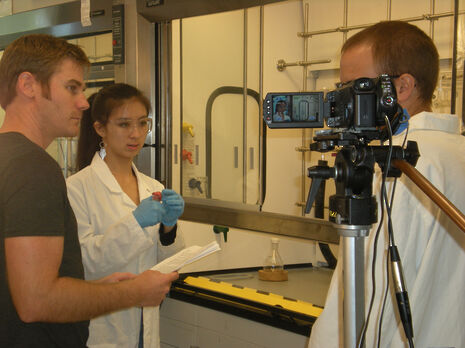The media have a problem with science
Journalists and politicians alike struggle to present science accurately – often deliberately, argues Science Editor Jon Wall

Science and the media have always had an uneasy relationship. Science can too often provide a crutch for the media to lean on, with new ‘evidence’ for a policy or an earth-shattering ‘breakthrough’ offering a quick and easy story. This is not necessarily a bad thing, but the nature of modern science, with research groups desperate for funding and university press departments keen to emphasise success, mean that announcements can tend towards the hyperbolic.
At the same time, media organisations are swift to use science as validation for a narrative they wish to construct – the list of things the Daily Mail claim causes cancer is ever-growing and increasingly contradictory. Even when scientific evidence is taken in its own light, it seems that the media's processing of research papers involves a series of black-and-white filters. Research papers acknowledge nuance and room for uncertainty, but press releases focus on success. By the time these reach the airwaves, or the print edition of a national newspaper, the research has modulated into either a full-blown panacea or crisis.
What is particularly troubling is that this (mis)use of science has extended into the political sphere, as inaccurately-portrayed ideas filter through to the politicians who make key decisions about science funding, and the applications of scientific research. These are politicians such as homeopathy supporter Nadine Dorries, who was appointed to the House of Commons Science and Technology Committee, only attended two per cent of its meetings, and then was rewarded by being appointed to the Health Committee. The Green Party and associated environmental campaigners are some of the worst offenders when it comes to twisting scientific research to suit their various narratives – and let’s not even talk about climate change denier Trump.
While these are outliers, so very, very few of the current crop of MPs have scientific backgrounds, and though it is worth noting that recent science ministers such as David Willetts and Jo Johnson have been relatively good at engaging with science, the British ‘establishment’ as a whole is not. Media and politics are largely dominated by arts and humanities graduates, and while they bring valuable perspectives, being able to understand nuance and subtlety in technical subjects is vital. This technical information will drive the future of our country, whether that be in energy, security, emerging technologies or the eradication of disease – yet the problem persists.
Greater campaigning for science in the media in recent years has reaped some dividends, but on the whole there are still major problems. Media misrepresentation of scientific research has material effects on how people live their lives – for example, in trying to stay healthy to avoid contracting cancer.
Misreporting works against this. To expand on Donald Rumsfeld’s well-known quotation: researchers know that they have known knowns and known unknowns – so why can’t the media get a grip on it?
 Interviews / ‘People just walk away’: the sense of exclusion felt by foundation year students19 April 2024
Interviews / ‘People just walk away’: the sense of exclusion felt by foundation year students19 April 2024 News / Controversy on the Cam: John’s spend almost 90 times more on rowing than other colleges19 April 2024
News / Controversy on the Cam: John’s spend almost 90 times more on rowing than other colleges19 April 2024 Theatre / The closest Cambridge comes to a Drama degree 19 April 2024
Theatre / The closest Cambridge comes to a Drama degree 19 April 2024 News / Corpus student left with dirty water for over six months21 April 2024
News / Corpus student left with dirty water for over six months21 April 2024 News / Emmanuel College cuts ties with ‘race-realist’ fellow19 April 2024
News / Emmanuel College cuts ties with ‘race-realist’ fellow19 April 2024





